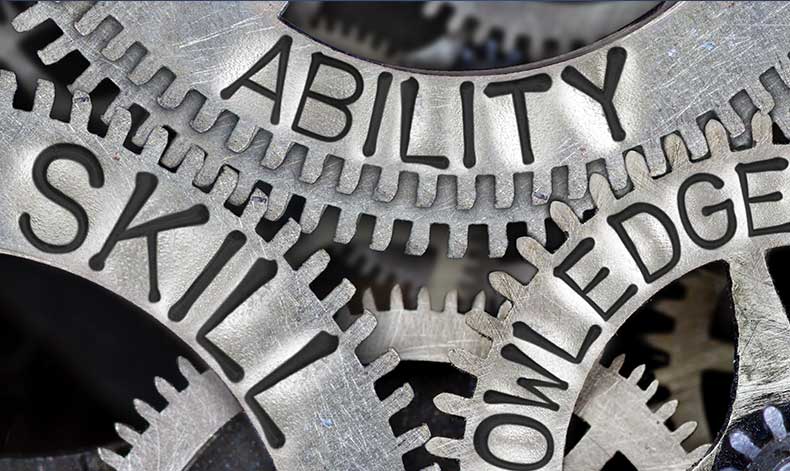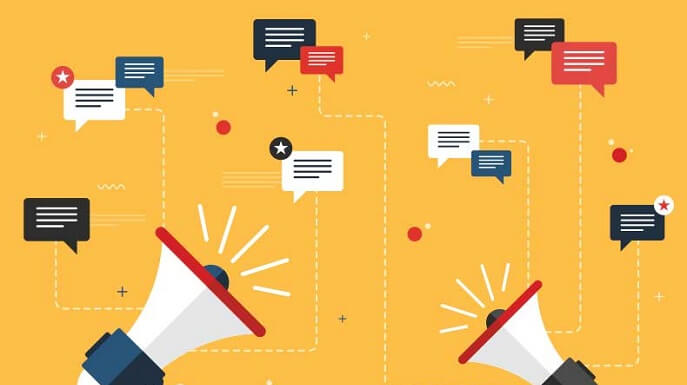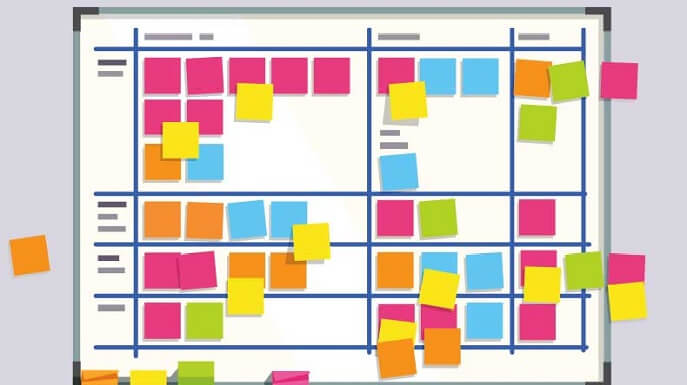What are communication skills?
Communication is a way of sending messages from one place or person to another.
We communicate every day, whether it's through words, actions or expressions. We've been communicating since we were babies (by crying). Now that we're older, we can communicate in different ways, like:
-
Talking
-
Sign language
-
Letters
-
Emails
-
Social media
-
Text messages
Most communication methods can be split into three skill categories:
-
Verbal communication: interacting by speaking e.g. by phone or in person
-
Written communication: writing down your message e.g. emails and letters
-
Visual communication: how you conduct yourself e.g. your body language
Why are communication skills important?
Employers are always on the hunt to hire good communicators. Job adverts regularly state things like:
-
“You'll be a confident communicator”
-
“You're able to comfortably liaise with colleagues at all levels”
-
“We're looking for eloquent graduates”
-
“You can present complex ideas in a simple fashion”
-
“We need someone with outstanding written and verbal communication skills”
-
“You can adapt your communication style to suit the audience”
Communication allows us to express how we feel and what we need. Without communication businesses would fail and society would collapse!
What makes a good communicator?
Successful communication can be broken down into three components:
-
Listening to what people are saying so you can respond appropriately
-
Presenting information clearly so it's easy to understand
-
Adapting by tailoring information to suit the audience
At work, you'll need to talk to a range of people. These components will help you communicate comfortably and effectively with anyone, whether they're an intern or a CEO.
How to gain communication skills
As a graduate, you would've had lots of opportunities to gain and develop your communication skills:
Verbal
-
Presentations
-
Customer facing jobs
-
Volunteering
-
Student radio
Written
-
Assignments, reports and dissertations
-
Blog writing
-
Writing articles for student newspapers
if you haven't tried any of the above, give them a go!
How to demonstrate your communication skills
Jot down your skills
Mention your communication skills in your CV and explain how you used them in your previous jobs. For example:
-
Responded to customer queries using written and verbal channels
-
Provided expert recommendations based on customer requirements
-
Liaised with stakeholders to plan new campaign ideas
-
Attended networking events to generate business and negotiate contracts[
-
Maintained client relationships by obtaining and acting on feedback
Example skills to list on your CV
-
Articulate
-
Customer service
-
Influencing
-
Listening
-
Multi-lingual
-
Negotiation
-
Networking
-
Persuading
-
Presenting
Talk about your skills
In interviews. Instead of just saying “I have great communication skills” explain what skills you hold and provide examples of when and how you've used them.
Using the STAR framework will help you structure your answer. STAR stands for stands for Situation, Task, Action and Result. When you're answering a question, explain the:
Situation: Set the scene, explain what happened, what was the problem? Task: Explain what you needed to do Action: Describe what you did and how you did it, did you face any challenges? Result: What was the outcome? Did you achieve your aim? What did you learn?
Show you're a star by using STAR!
Example
Question: Describe a time you overcame a difficult situation at work.
Situation
I used to work in as a Customer Service Advisor in a call centre for a bank. I got a call from an unhappy customer who was threatening to make a complaint.
He applied for a credit card 4 weeks ago but it hadn't arrived. It should've arrived within 10 days after applying. The customer was due to go abroad in 7 days time and needed the card before he left the UK.
Task
It was down to me to:
-
Find out what had gone wrong
-
Explain the situation to the customer
-
Resolve the situation
-
Get card delivered before he went abroad
-
Avoid a complaint
Action
I contacted the credit card team to find out what had gone wrong. There has been a technical error with the application. The application needed to be reprocessed.
I explained the situation to the customer in simple terms so he understood what had happened. I apologised and promised to call him every day to give him an update.
I liaised with the team every day to get the application processed as soon as possible.
Result
The card arrived one day before the customer was due to travel. The customer was very relieved and grateful for everything that was done for him.
As a result, the customer was satisfied and a complaint was avoided. This case also helped the bank improve its credit card production process to it make easier to detect application faults and errors.
How to improve your communication skills
No-ones perfect. There's always something we can improve on. Here are ways you can give your communication skills a boost.
Verbal communication
-
Join a debating society - learn how to structure and deliver your views
-
Work in sales - get experience in negotiating and persuading
-
Join a drama club - build your public speaking confidence
-
Do some role play - practise with mock interviews
-
Attend career workshops - et professional advice and feedback
Written communication
-
Check your grammar - proofread your work to find and correct mistakes
-
Think about your tone - use professional language and structures
-
Be concise - get straight to the point, don't waffle!
-
Get advice and feedback - attend career workshops
Body language
Body language relates to how you come across based on your movements, gestures, posture and expressions.
Let's face it, people make judgments and assumptions, so it's important to make a good first impression.
You may have nailed your verbal and written communication techniques. However, if your body language isn't on point, you might lose out on bagging that dream job.
When it comes to body language, make sure you:
-
Have a firm handshake (not crushing, not floppy)
-
Sit up straight so you don't look lazy
-
Maintain suitable eye contact to show you're listening (don't stare!)
To improve your body language, you can attend a career workshop to:
-
Practice through role play and mock interviews
-
Get useful tips and feedback from experts









